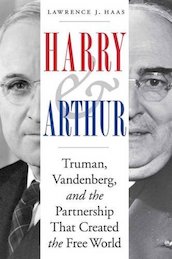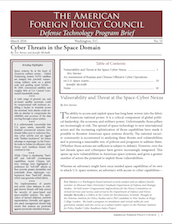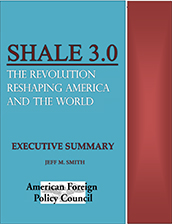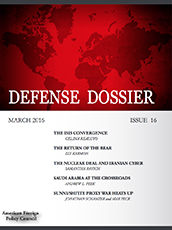Russia Reform Monitor: No. 2057
The unnoticed Ukrainian migrant crisis;
Putin's finances: do as I say, not as I do
The unnoticed Ukrainian migrant crisis;
Putin's finances: do as I say, not as I do
The security situation in North Africa is growing increasingly dire, with destabilized countries and growing terrorist groups. Meanwhile, the U.S. combatant command for the region has been stuck in Germany for eight years. It is time to make another attempt to find a host country in Africa, and Morocco may be the place.
Indo-US military ties deepen;
France, India finalize aircraft deal;
Pak "
certain"
China will block India from NSG;
Attack on CIA camp funded by Pak? Sri Lanka to secure Malacca straits;
Fighting continues in Kunduz
Paranoia in the Kremlin as elections approach;
Russia's sly nuclear build-up
It is widely known that Russia has a difficult relationship with its past. In the quarter-century since the collapse of the Soviet Union, successive governments in Moscow have been conspicuously consistent in skirting serious questions about the repressive nature of the now-defunct Soviet state and minimizing the shadow that it continues to cast over the Kremlin.
Largely unnoticed by the West, Vladimir Putin has just launched a radical overhaul of power in Russia. On April 5th, the Russian President formally announced the creation of a new National Guard intended to serve as an umbrella organization and coordinating body for the country's numerous "force ministries."
Kadyrov gets a stay of political execution;
The dollars and cents of Russia's Syria intervention
"I think the president would like to do it," John Roos, President Barack Obama's former ambassador to Tokyo, said the other day about a possible Obama visit to Hiroshima when he attends the Group of Seven Summit next month in Japan. "He is a person who bends over backwards to show respect to history, and it does advance his agenda."
That a visit to Hiroshima, on which President Harry Truman dropped the world's first deployed atomic bomb, would advance Obama's agenda is clear. He has long envisioned a world without nuclear weapons, announced steps to pursue it in a high-profile speech in Prague in April of 2009, and continues to push for U.S.-Russian cuts in nuclear arsenals and global efforts to secure loose nuclear materials.
Green movement leader still languishes;
The JCPOA's energy dividend;
Europe becomes the Islamic Republic's lobbyist;
Iran sets its sights on India;
An Iranian General in Moscow
Jordan moves against the Brotherhood;
ISIS broadens its reach in Libya;
Rethinking the Sinai;
The West's vulnerable nuclear sector
Duma backpedals on press restrictions;
Militarizing the Kurils
We're witnessing a strange spectacle in U.S. foreign policy, one with no obvious precedent: President Barack Obama is trying desperately to protect his cherished nuclear deal with Iran, making one concession after another in response to Iran's post-deal demands to ensure that Tehran doesn't walk away from it.
Chinese agency promotes global electricity grid;
Chinese fishing vessels stir controversy in Malaysian waters
Saudi Arabia, India team up against terror;
U.S. concerned about PAK nuclear security;
Sri Lanka and India deepen ties;
China blocks ban of JeM chief;
Corruption in Afghanistan real threat
China enmeshed in Zimbabwe politics;
Beijing pledges to implement DPRK sanctions
Crimea languishes under Russian rule;
Savchenko trial heads toward predetermined outcome
Pentagon eyes next generation weapons;
Combating terrorists on social media;
A different kind of computer learning;
After DPRK test, new missile defense momentum in Seoul and Tokyo
Russia withdraws from Syria... somewhat;
The Obama administration holds the sanctions line
Last week, a fresh political scandal erupted on Capitol Hill over Iran. At issue was a new plan being considered by the Obama administration to provide Iran's ayatollahs with limited access to the U.S. financial system as a sweetener for their continued compliance with their government's 2015 nuclear deal with the nations of the P5+1.
Russian President Vladimir Putin's March 14 announcement of a partial withdrawal of forces from Syria predictably surprised the Obama administration, which is habitually surprised by the current occupant of the Kremlin. In doing so, it became part of a larger pattern. Recent Russian-American ties demonstrate all too clearly that President Barack Obama still fails to grasp what it is, exactly, that Russia wants - and why it is successfully achieving these objectives despite the country's growing domestic crises.
A Hezbollah withdrawal...perhaps;
One step forwards, two steps back in Afghanistan;
France's abortive CT plan;
Israel girds for ISIS incursion

This book shares the untold story of how Democratic President Harry Truman and Republican Senator Arthur Vandenberg worked together in the perilous late 1940s to produce a revolutionary new U.S. foreign policy that has served America well ever since – with the United States seizing global leadership to protect its friends, confront its enemies, and promote freedom.

The goal of the new Strategic Primer initiative is to provide a concise, comprehensive overview of specific defense technology issues presented in a clear, direct, and graphical manner that serves as an accessible reference to policymakers. Volume 2 of the series focuses on Cybersecurity.
Former separatist fighter spills the beans;
Goodbye to the UN (in Russia)

The ability to access and exploit space has long been woven into the fabric of American national power. It is a critical component of global political leadership, the economy, and military power. Unfortunately, those pillars are increasingly at risk. The spread of space technology to new international actors and the increasing sophistication of those capabilities have made it possible to threaten American space systems directly. The national security community is accustomed to analyzing these threats and vulnerabilities and is pursuing a reasonable mix of policies and programs to address them. (Whether those actions are sufficient is subject to debate). However, over the last decade space and cyberspace have grown increasingly integrated. This opens up new vulnerabilities in American space systems, and gives a greater number of actors the potential to exploit those vulnerabilities...
U.S. and China trade barbs at Human Rights Council;
Gambia ditches Taiwan, restores relations with China
Pak eyes more U.S. F-16S;
Hackers targeting Indian defense establishment;
India signs 28 defense contracts;
Pak seeks stronger ties with Sri Lanka;
Border forces to be withdrawn from LOC?
Hong Kong residents flock to the U.S.;
Beijing rewriting rules for car-hailing services
The strange case of Igor Sergun;
Political protests not allowed
Call it Vladimir Putin's "mission accomplished" speech.
The Russian president recently caused an international furor when he abruptly announced that his government was commencing a military withdrawal from Syria. Russia had "radically changed the situation" on the ground through its involvement, and its strategic objectives had been "generally accomplished," Putin said in a televised meeting with top advisors in Moscow, including Defense Minister Sergei Shoigu and Foreign Minister Sergei Lavrov. As a result, Russia's commander-in-chief declared, he had made the decision "to start withdrawal of the main part of our military group from the territory of the Syrian Arab Republic starting from tomorrow."
Iranians are famously savvy negotiators, so recent revelations that, under the U.S.-led global nuclear deal, Iran has far more leeway than we had thought to hide its nuclear progress and test ballistic missiles shouldn't surprise us.
It should, however, alarm us.
Report: Russia complicit in MH17 downing;
Kadyrov blinks in contest with the Kremlin
Construction begins on China’
s first overseas military base;
Beijing cracks down on financial reporting amid crisis
Corruption: Scourge of Central Asia;
A shrinking Russian footprint in Tajikistan;
Kazakhstan, speaking plainly Kyrgyzstan tightens control over Islamic education
Beijing overtakes New York in number of billionaires;
China wants patriotic education for all students, even those abroad
Iran's elections: Less than meets the eye;
The Iranian military goes on the sectarian offensive;
A soaring execution rates;
Nuclear oversight of Iran shrinks
Russia goes its own way on Afghanistan;
Amnesty: Russia guilty of "
war crimes"
in Syria
Xi tours China's new media, demands loyalty to the Party;
China eyes $20 billion in new financing for Iran
Russian NGOs under fire yet again;
Moscow expands Mediterranean presence
China braces for fallout as illegal lending markets collapse;
Hong Kong mulls ban on masks during social protests
In the current political season, it's the policy dog that isn't barking.
Over the past several primary debates, candidates on both sides of the aisle have sparred at length over national security, offering contrasting - if still vague - strategies for dealing with Russia, the Islamic State and Iran, among other foreign policy challenges. But precious little attention has so far been paid to a more fundamental question: Does the U.S. military actually have the resources to adequately respond to today's global threats?
Libya, and the Western response;
The Islamist penetration of Europe;
Pushing back against Boko Haram;
A growing ISIS footprint in Pakistan;
The ISIS threat to the U.S.

The world has long known of the existence of a virtual ocean of underground oil and gas deposits imprisoned in “tight,” low-permeable shale rock formations. Until recently, however, it was convinced there was no profitable extract them.
Did Kamaev get his comeuppance?;
Western NGO activists feel the heat
U.S. space dominance a double edged sword;
The Air Force's new cyber shield;
All eyes on electronic warfare;
China pushing new boundaries with its drones
A looming rupture in Russo-Turkish ties;
Russians increasingly see country in throes of economic crisis

The Isis Convergence
The Return Of The Bear
The Nuclear Deal And Iranian Cyber
Saudi Arabia At The Crossroads
Sunni/Shi'ite Proxy War Heats Up
On Friday, Iranians went to the polls to select new representatives for the country's legislature, known as the Majles, and its Assembly of Experts, the powerful clerical body that oversees the performance of Iran's supreme leader. The results reflect a stronger-than-expected showing from the country's so-called "reformist" camp, particularly the political circles surrounding Iranian president Hassan Rouhani.
Russian truckers protest... and organize;
A booming illicit economy